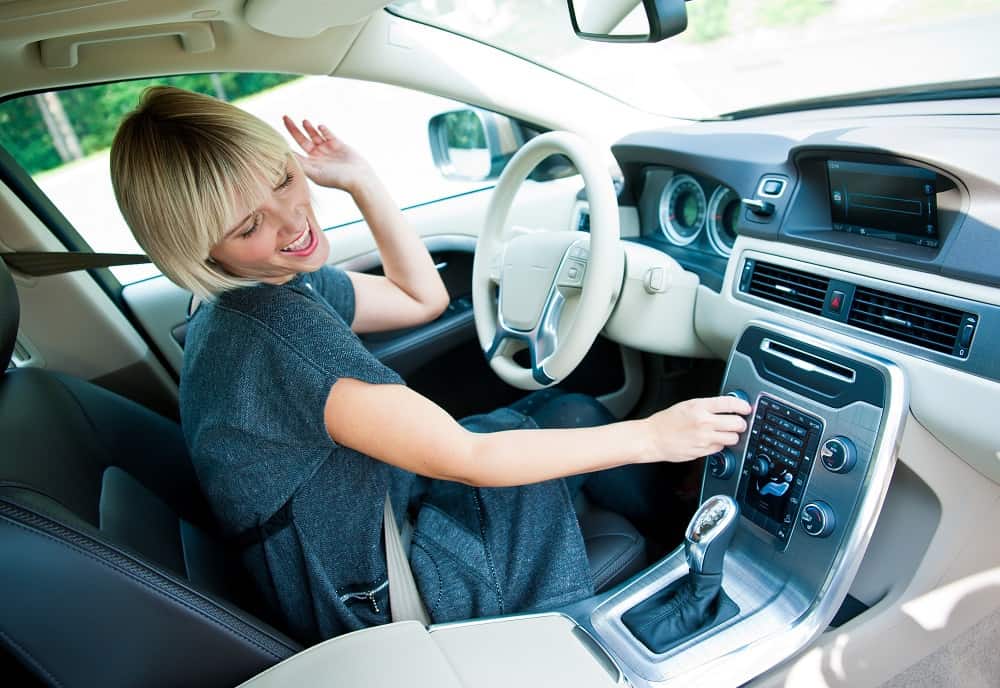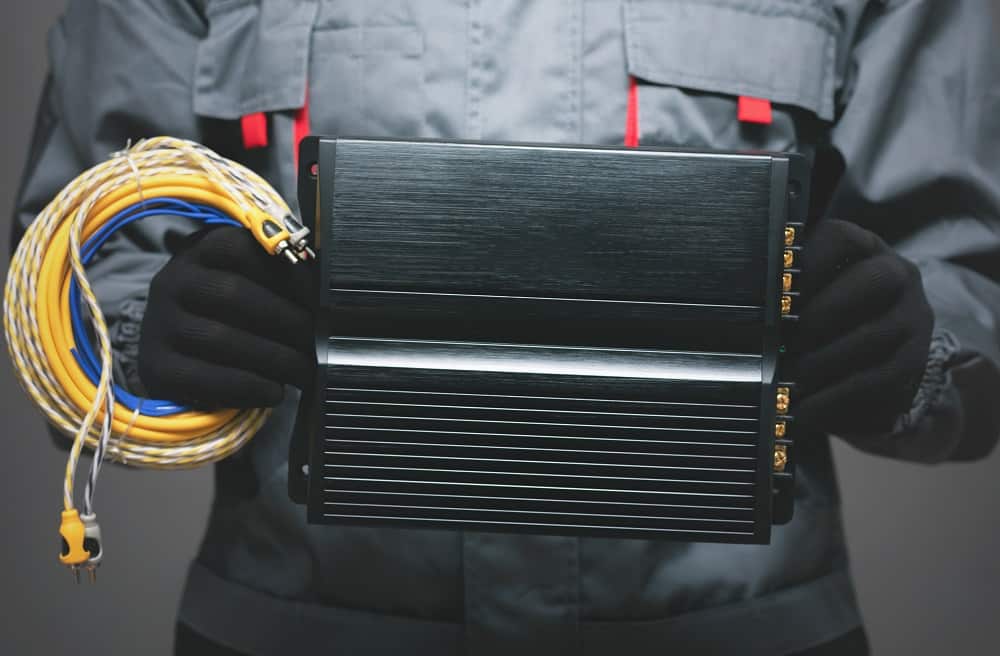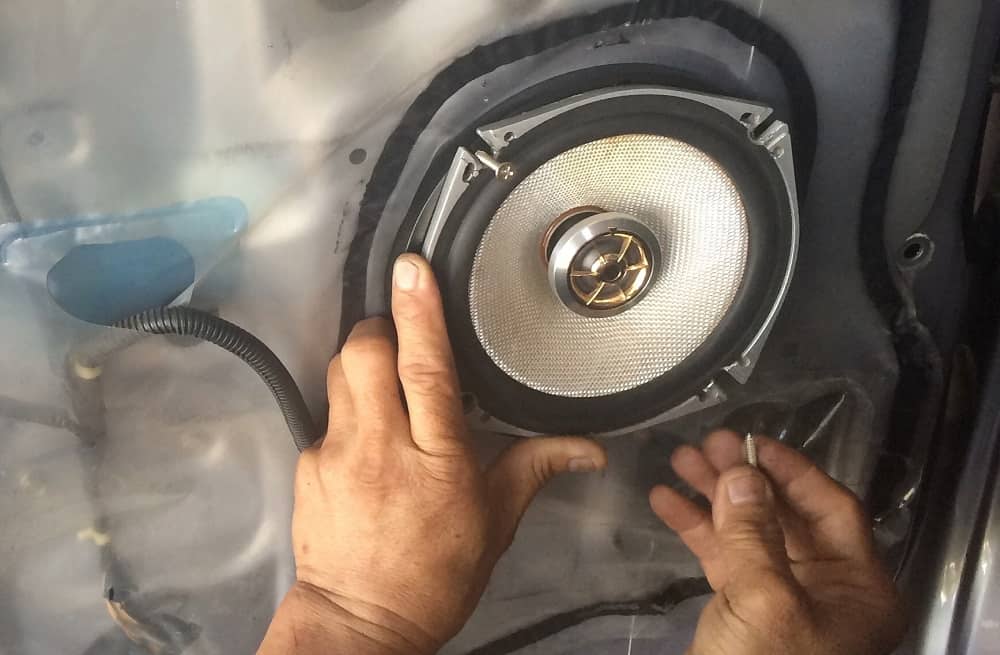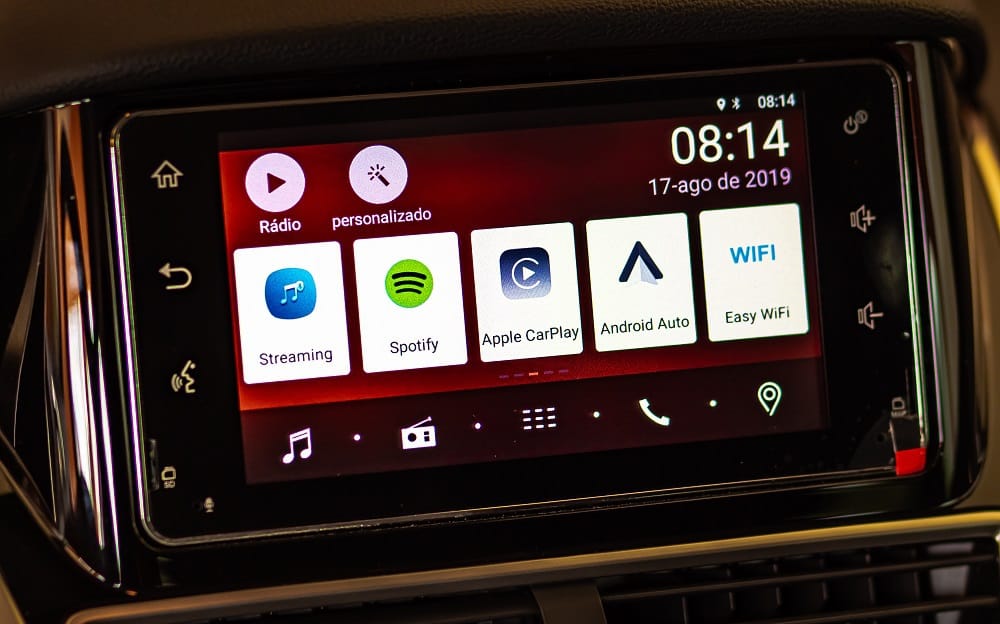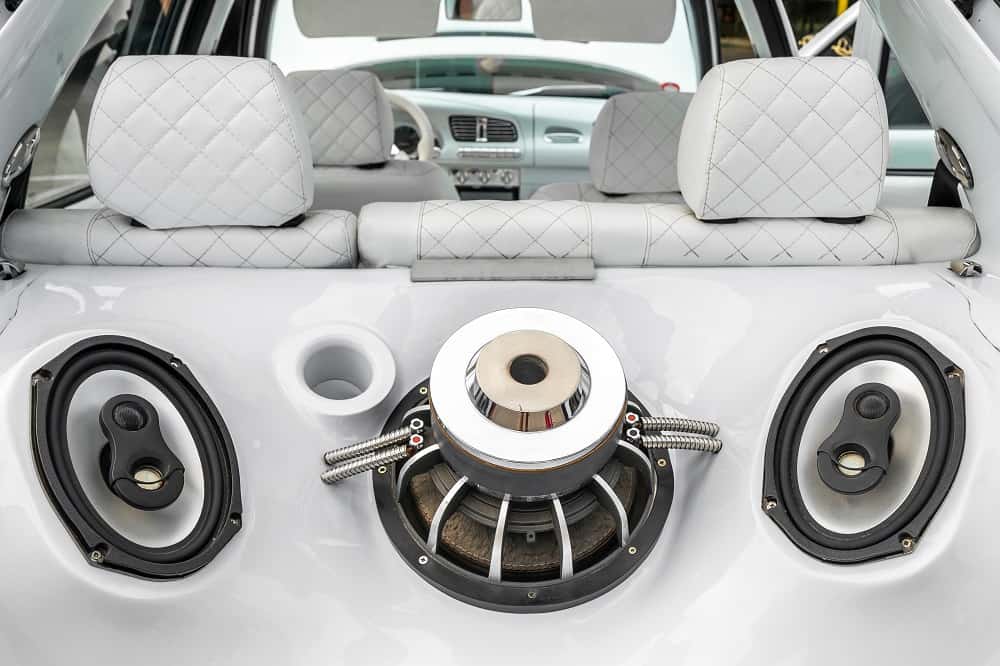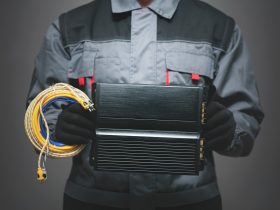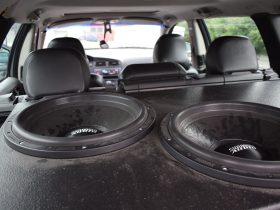If you love cranking tunes or listening to voice audio like podcasts in your car, audio sound quality is probably important to you. Regardless of the car you drive, following these 18 tips will improve your listening experience across various types of audio.
Tip One: Install a Car Amplifier
The most important piece of equipment needed to improve your car’s audio quality is a high-quality amplifier. What does an amplifier do? It enhances your audio input and sends it to your car’s high-quality speakers.
If you want good highs, lows, and mids, a good amplifier is key. Though most amplifiers tend to emphasize lows (so you can hear that bass drop), install an amplifier rated for precision in highs and mids as well.
Do you like to jam in the car with your music at top volume? opt for a high-quality amplifier. This will also help if your car isn’t producing a loud enough volume for you.
For the best quality sound in your car, choose from one of these top of the line car amplifiers:
Tip Two: Get a High-Quality Equalizer
When car owners think about improving their sound quality, often they go straight to amplifiers or speakers. However, your equalizer is an essential piece of equipment for improving your car’s audio sound quality.
Most cars come with a standard treble equalizer. A high-quality equalizer will allow you to finely tune your car audio sound beyond the standard variety. A car equalizer adjusts audio input signals for the best quality of sound. As a general rule, the more controls or bands your equalizer has, the more precise your audio quality will be.
Not sure where to start with car equalizers? Check out these three high-quality car equalizers we recommend:
- Clarion EQS755 7-Band Car Audio Graphic Equalizer
- db Drive E7 EQ7 7-Band Equalizer
- Massive Audio EQ-7X Car Equalizer with 7 Band Graphic Equalizer
Tip Three: Replace Your Speakers
One of the easiest ways to improve the sound quality in your car is to replace the speakers. The standard speakers on most cars don’t offer the most outstanding sound quality. So, opt for a set of high-end car speakers to improve your audio sound quality.
What many car owners don’t realize is that speakers can deteriorate in quality over time. So, if your car’s got a few years on it, even if the speaker were once high-quality, it’s likely time they need a replacement.
Choosing the right car speakers can be difficult. We’ve made it easy by narrowing it down to these three top speakers for your car:
-
NVX 6 1/2 inch Professional Grade True 100 watt RMS 2-Way Coaxial Car Speakers
- JBL CLUB6520 6.5″ 300W Club Series 2-Way Coaxial Car Speaker
Tip Four: Lower the Compression of Audio Files
Looking for a no-cost way to improve your car’s audio sound quality? Adjust the level of compression on your audio files down as much as possible. This is key if you’re playing music or voice audio from a storage device like your phone, iPod, or MP3 player.
The more files you have saved on your device, the lower the quality will be. This is because your device maximizes storage by compressing your audio files. So, if you want better sound quality, you want to reduce file compression.
How to reduce compression depends upon your device. For devices specifically designed to play music, like iPods and MP3 players, you can probably go to settings to set the compression level as low as possible. For multi-use devices, like phones, you will likely need to delete files to reduce the level of compression.
Tip Five: Use a High-Quality Streaming Service
This tip is related to the tip above. Whether you’re streaming music, podcasts, or books, you want to choose a streaming service with Hi-res audio for the best quality sound in your car.
Streaming services remove file compression altogether because you are not saving files to your device. Rather, you’re streaming them over Wi-Fi or cellular internet. Because these files live within the streaming service, you don’t have to worry about your device compressing them, thus reducing sound quality.
Not sure which streaming service is best? Here are our top streaming service picks for multiple uses:
- For music: Spotify. Streaming with Spotify ensures the music you listen to is of the highest quality, with precise, amplified sound. What’s more, you’ll have instant access to almost any album as soon as it drops.
- For audiobooks: Audible. Not only does this service boast the most available audiobooks at one monthly subscription cost, but it also ensures you get the best voice quality from each book reader.
- For podcasts: Stitcher. You can find just about any podcast you like on Stitcher. You can also be assured that podcasts are offered and streamed with high audio sound quality for both voice and music.
Tip Six: Bypass Your Device’s Digital-to-Analog Converter (DAC)
If you’re listening to digital audio, as most of us are these days in our cars, your device is probably using a DAC to convert your sound from digital to analog. DACs tend to work fine when you’re listening through simple earbuds or headphones. But, if you’re listening using some of the high-quality car sound equipment we’ve mentioned above, the DAC can reduce your sound quality.
For most audio devices, you can bypass the DAC to improve sound quality. Not sure how to bypass your DAC? Check your audio device’s manual or instructions, or do a simple google search. It’s likely someone has already posted instructions online to tell you how to bypass the DAC on your device.
Tip Seven: Install Sound Absorbing Equipment
When we think of sound absorption, we often think about large foam panels or egg crates or other insulation materials that insulate sound and improve acoustics. Believe it or not, some manufacturers make sound absorption equipment for cars that will help soundproofing cars from road noises so you can focus listening on your car’s audio.
Check out these car sound absorption kits:
Tip Eight: Customize Your Audio Controls
Most modern cars offer you the ability to customize audio controls. You can specify how you want your music to play across ranges. You can also likely offer each passenger the ability to customize audio controls for their specific seat in the car.
To customize audio controls, go to the audio settings section of your car’s digital control panel. If you’re unsure how to do this or your vehicle does not have a digital control panel, consult your owner’s manual for specific instructions.
Tip Nine: Plug In
So many of us listen to music in our cars these days using Bluetooth. While this audio transmission method is highly convenient, it produces a pretty poor sound quality.
Want to improve the quality of your sound? Try plugging your device directly into your car. Even a USB cable produces better sound quality than Bluetooth. However, you want to plug in using an audio cable, like an audio auxiliary (AUX) line, for the best sound quality.
If your car does not have a jack for an audio auxiliary line, invest in a converter for the best sound quality.
Tip Ten: Do Not Max-Out Your Audio
We understand the appeal of cranking up the volume to its max capacity when you’re jamming out in your car. However, maxing-out audio, whether for a specific range (like kicking the bass up) or for the volume generally, tends to lead to sound distortion.
What’s more, maxing out volume means that you’re less likely to hear road sounds. This may mean you miss the sound of someone’s horn warning you of a hazard, or you cannot hear emergency vehicles as they approach. This creates a serious safety hazard for you and your passengers.
Tip Eleven: Install a Subwoofer
Most cars do not come with pre-installed subwoofers. Invest in a quality subwoofer if you want to pump up that sound or hear the maximum bass drop. This special kind of speaker is designed to give you optimal sound quality across all kinds of audio.
There are plenty of car subwoofers on the market. To help you choose the best one, we’ve narrowed down to our top three recommendations:
- JL Audio 10TW3-D4 10″ 400W Dual 4 Ohm Thin-Line Component Car Subwoofer
- KICKER 45DL7R122 Dual 12 Inch Solo-Baric L7R 2 Ohm 1200W RMS Dual Voice Coil Car Audio Angled Profile Subwoofer
- JBL BassPro SL 8-inch 125W RMS Powered Under-Seat Compact Subwoofer Enclosure System
Tip Twelve: Drive a Low-Noise Car
Some cars are simply noisier than others. A large diesel pick-up designed for hauling is just louder than a compact electric vehicle.
If you want optimal audio quality while you drive, the less noisy your car, the better. While this is a more drastic option than some of our other tips, it may be worth considering. If sound quality is
of utmost importance to you, trade in that noisy gas-guzzling vehicle for a quiet hybrid or electric one. Or, if you’re already considering getting a new car, consider how noisy it is during your test drive and pick one with the least car noise volume.
Tip Thirteen: Replace Your Head Unit Stereo
While there are lots of equipment upgrades or additions to consider for improving your car’s audio sound quality, most folks start right here, with the head unit stereo. The head unit stereo is the actual system with which you interface (what most folks think of as their car stereo).
Almost any car you can purchase will come with some kind of head unit, from a simple radio to a CD system unit, to a Bluetooth interface unit. To improve the sound in your car, opt for a high-quality head unit that fits your vehicle.
For the best car head unit stereo brands, opt for one of these top picks:
- Kenwood DMX4707S 6.8″ Digital Media Touchscreen Receiver w/ Apple CarPlay and Android Auto
- Sony XAVAX1000 6.2″ (15.7 cm) Apple CarPlay Media Receiver with BLUETOOTH
- Planet Audio P9900CPA Apple Carplay Android Auto Car Multimedia Player – Double-Din
Tip Fourteen: Replace Battery Terminals with Stainless Steel or Gold
When thinking about car audio sound quality, most folks don’t tend to think about their car’s battery. However, the battery powers your audio system and can affect sound quality.
The standard terminals included in most cars are made of low-quality steel, which can corrode quickly. To improve your car’s overall power system and the power to your audio, in particular,
opt for stainless steel or gold battery terminals. Most battery terminals come in a few sizes that can accommodate the thicker wires of an amplifier.
Tip Fifteen: Replace Your Alternator
This tip can be a bit on the costlier side but makes a big difference in sound quality. Manufacturers design the factory alternator on your car to power the standard off the lot equipment. However, if you are upgrading to better equipment, like a high-quality amplifier, or installing new equipment, like a powerful subwoofer, you will need more energy.
If your equipment is not receiving enough power, it will be inefficient and of lower sound quality. This affects not only your sound quality but will also drain your car’s battery more quickly. Consistent underpowering of audio equipment give you poorer sound quality and will reduce the life of your high-end audio equipment.
To ensure your equipment receives enough power, consider replacing your car’s alternator with one that produces more battery power. For this tip, you may want to wait until your alternator needs replacing, then choose one that sufficiently powers your audio system.
Tip Sixteen: Try Listening From Multiple Sources
You have many options for listening in your car. These may include streaming services, audio devices like iPods, radio, and CDs. Each of these sources produces a different sound quality.
If you’re looking for the optimal sound quality for you, try listening from as many sources as you have available in your car. Then, opt for the source that sounds the best to you.
Tip Seventeen: Replace Speaker Wires Throughout Your Car
This final tip is perhaps the most time and labor-intensive. However, it can make a big difference in car audio quality.
Your car’s wires transmit sound from your amplifier to your speakers. The standard factory wires on most cars tend to be thin and of lower quality. For the best sound quality, you want high-end, thick wires throughout your vehicle.
Keep in mind, if you’re replacing other audio equipment in your car, as discussed above, you’ll probably have to replace at least some of the wiring. You can use this as an opportunity to replace most or all of the audio wiring in your car with quality audio wires that will improve your sound quality.
Tip Eighteen: Take the Road Less Traveled
If you’re traveling some distance and want to get from point A to point B as quickly as possible, you’re probably going to jump on the highway or freeway. However, these roadways are the noisiest, making it more difficult to hear the audio in your car.
If you want to improve your car listening experience, choose surface roads instead. You’ll find the outside noises are lower, so you can hear music or voice audio in your car even better. What’s more, you’ll probably save a few extra bucks on gas as you travel at lower speeds.
Conclusion
Whether you’re jamming out to tunes, listening to podcasts, or streaming audiobooks, your car’s sound quality is important to you. You have many options for improving the audio sound quality in your car, from replacing equipment to purchasing audio-enhancing devices to selecting a car that optimizes and prioritizes sound quality.
Follow these 18 tips to achieve the highest quality sound in your vehicle. Happy driving and happy listening!

